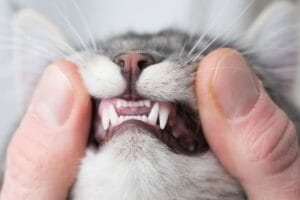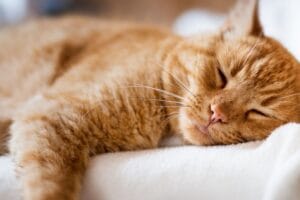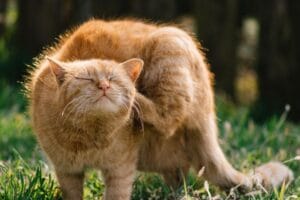Best Homemade Cat Foods for Weight Gain
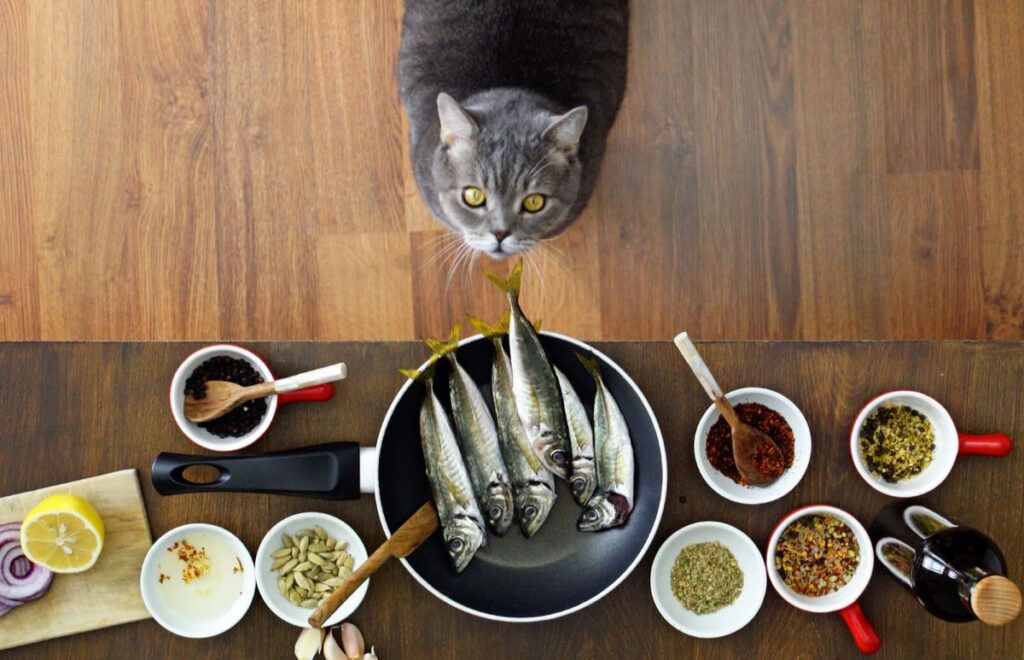
Maintaining a healthy weight is crucial for the overall well-being of our feline companions. However, some cats may struggle with weight gain, which can pose health risks. In such cases, homemade cat food can be an excellent solution to help your cat achieve a healthy weight. By preparing specialized meals at home, you have full control over the ingredients, ensuring a nutritious and calorie-dense diet. In this article, we will guide you through the process of creating some of the best homemade cat foods for weight gain for your furry friend!
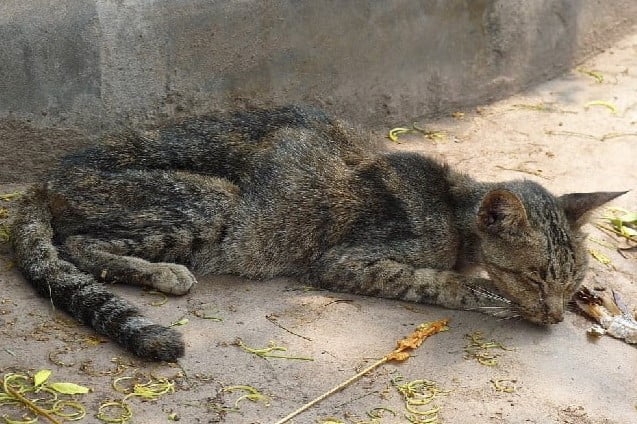
Understanding Cat Weight Gain:
In order to effectively address weight gain in cats, it is crucial to comprehend the reasons behind their difficulty in gaining weight. Several factors can contribute to a cat’s struggle to maintain a healthy weight. By understanding these factors, you can tailor your homemade cat food recipes to specifically address their needs. Let’s explore some common causes and the potential health implications of being underweight.
Fast Metabolism:
Some cats naturally have a faster metabolism, which means they burn calories at a quicker rate. As a result, they may find it challenging to consume enough calories to gain weight. It’s important to provide them with a diet that is calorie-dense to compensate for their high metabolic rate.
Medical Conditions:
Certain medical conditions can affect a cat’s ability to gain weight. Conditions such as hyperthyroidism, gastrointestinal disorders, dental problems, or other diseases can impact their appetite, digestion, or nutrient absorption. If your cat is experiencing unexplained weight loss or difficulty gaining weight, consult your veterinarian to rule out any underlying medical issues.
Stress or Anxiety:
Stress and anxiety can lead to a loss of appetite in cats, which can result in weight loss. Environmental changes, changes in routine, or the presence of other animals can trigger stress in cats. Ensuring a calm and secure environment, along with providing nutritious meals, can help alleviate stress and promote healthy weight gain.
The health implications of being underweight can be significant for cats. Cats that are too thin may experience muscle wasting, weakened immune system, and reduced energy levels. Their ability to fight off infections and recover from illness and injuries may also be compromised. Therefore, it’s essential to address weight gain in underweight cats to improve their overall health and well-being as soon as possible.
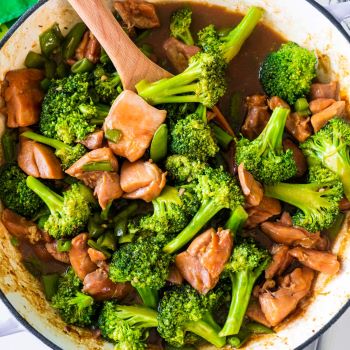
Planning a Homemade Cat Food Diet:
Homemade cat food for weight gain has its pros and cons. On the positive side, it allows you to customize the ingredients and address any dietary restrictions. However, it requires careful attention to ensure your cat receives the necessary nutrients. Here are some essential nutrients to focus on:
Protein: High-quality protein is vital for muscle development and weight gain. Sources like lean meats (chicken, turkey), fish, and eggs are excellent choices. For reference, cats need around 30 – 40% protein in their diets.
Carbohydrates: Incorporate healthy carbohydrates like cooked rice, sweet potatoes, or oats. These provide energy and aid in weight gain.
Healthy Fats: Including healthy fats in your cat’s diet is crucial for weight gain. Aim to incorporate sources like salmon oil or flaxseed oil, which are rich in omega-3 fatty acids. These fatty acids not only promote a healthy coat but also provide valuable nutritional support for weight gain. It is recommended to provide approximately 20 – 25% of your cat’s daily calorie intake in the form of healthy fats.
Vitamins and Minerals: Ensuring that your cat receives the necessary vitamins and minerals is essential for their overall health, including weight gain. Some examples of cat-friendly fruits and vegetables include carrots, blueberries, and leafy greens. To provide a more detailed breakdown of the vitamins and minerals that cats require, here are a few essential ones:
- Vitamin A: Supports healthy vision, immune function, and growth. It can be found in ingredients like carrots and liver.
- Vitamin D: Helps regulate calcium and phosphorus levels in the body, promoting strong bones and teeth. It can be obtained from exposure to sunlight and certain fish sources.
- Vitamin E: Acts as an antioxidant, protecting cells from damage. It can be found in ingredients like sunflower seeds and almonds.
- Vitamin K: Essential for proper blood clotting. Good sources include leafy greens like spinach and kale.
In addition to these vitamins, cats also require a range of minerals such as calcium, phosphorus, potassium, and magnesium. These can be obtained from a balanced diet that includes ingredients like bone meal, fish, and leafy greens.
Avoid trying anything new before researching the dish and its components first to make sure its safe for your cats. There are many common household eatables which are highly toxic for cats (especially if consumed in high quantities).
Best Homemade Cat Foods for Weight Gain (Recipes):
Let’s explore five nutritious and calorie-dense recipes that will help your cat gain weight. Remember to introduce these recipes gradually and monitor your cat’s response to ensure they tolerate the new diet well.
Here is our list of 5 best homemade cat foods for weight gain:
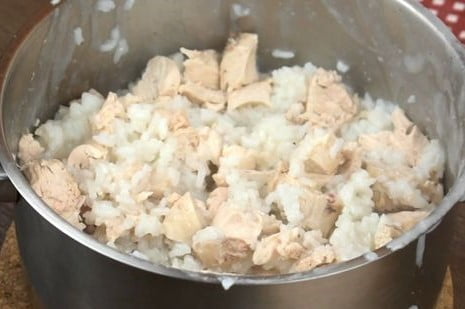
Recipe: Chicken and Rice Delight
Description: This recipe combines lean chicken with rice, providing a balanced combination of protein and carbohydrates.
Ingredients:
- 1 cup cooked chicken, shredded
- 1/2 cup cooked rice
- 1 tablespoon chicken broth (low-sodium)
- 1/4 teaspoon fish oil (optional)
Instructions:
- Cook chicken thoroughly and shred it into small pieces.
- Prepare rice separately according to package instructions.
- Combine the cooked chicken, rice, chicken broth, and fish oil in a bowl.
- Mix well until all ingredients are evenly distributed.
- Serve in appropriate portion sizes for your cat’s weight and size.
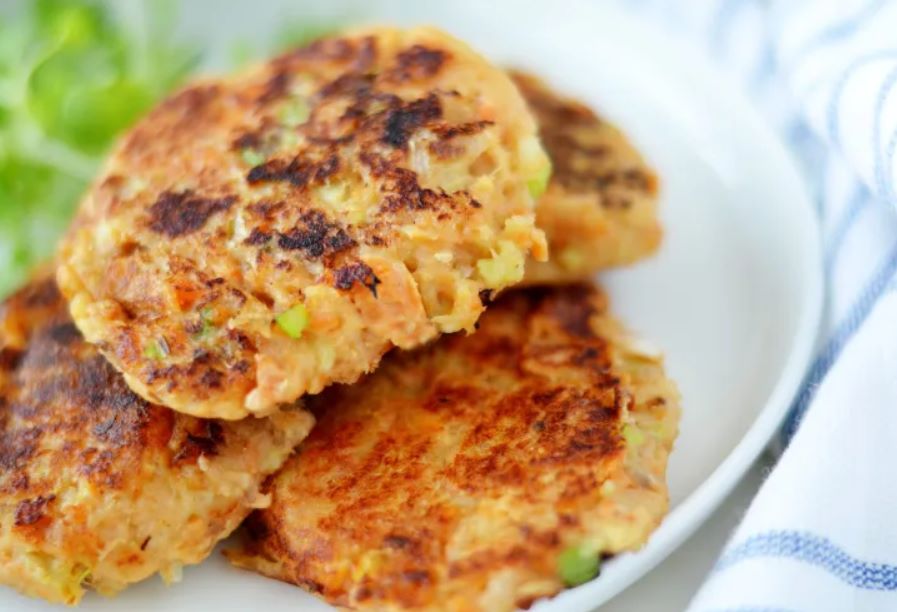
Recipe: Tuna and Sweet Potato Medley
Description: This recipe combines protein-rich tuna with nutrient-dense sweet potatoes for a satisfying meal.
Ingredients:
- 1/2 cup canned tuna (in water), drained
- 1/4 cup cooked mashed sweet potatoes
- 1 teaspoon olive oil
- 1/4 teaspoon taurine supplement (consult your vet for the appropriate dosage)
Instructions:
- Drain the canned tuna and flake it into small pieces.
- Cook the sweet potatoes until soft and mash them thoroughly.
- In a mixing bowl, combine the flaked tuna, mashed sweet potatoes, olive oil, and taurine supplement.
- Mix well to ensure even distribution of ingredients.
- Serve in appropriate portion sizes, taking into account your cat’s weight and size.
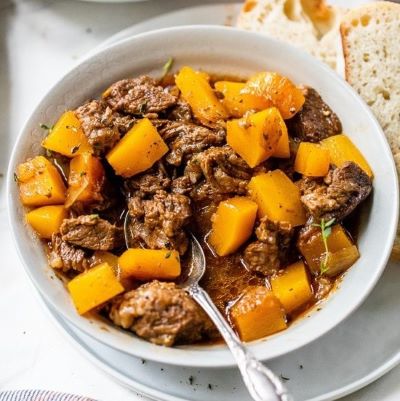
Recipe: Beef and Pumpkin Stew
Description: This hearty stew combines protein-rich beef with fiber-packed pumpkin for a nutritious and calorie-dense meal.
Ingredients:
- 1/2 cup lean ground beef
- 1/4 cup cooked pumpkin (pureed)
- 1/4 cup peas (cooked)
- 1/4 teaspoon coconut oil
Instructions:
- Cook the lean ground beef thoroughly, ensuring no pink remains.
- In a separate pot, cook the pumpkin until soft and puree it.
- Cook the peas separately until tender.
- In a mixing bowl, combine the cooked ground beef, pumpkin puree, peas, and coconut oil.
- Mix well to create a stew-like consistency.
- Serve in appropriate portion sizes for your cat’s weight and size.
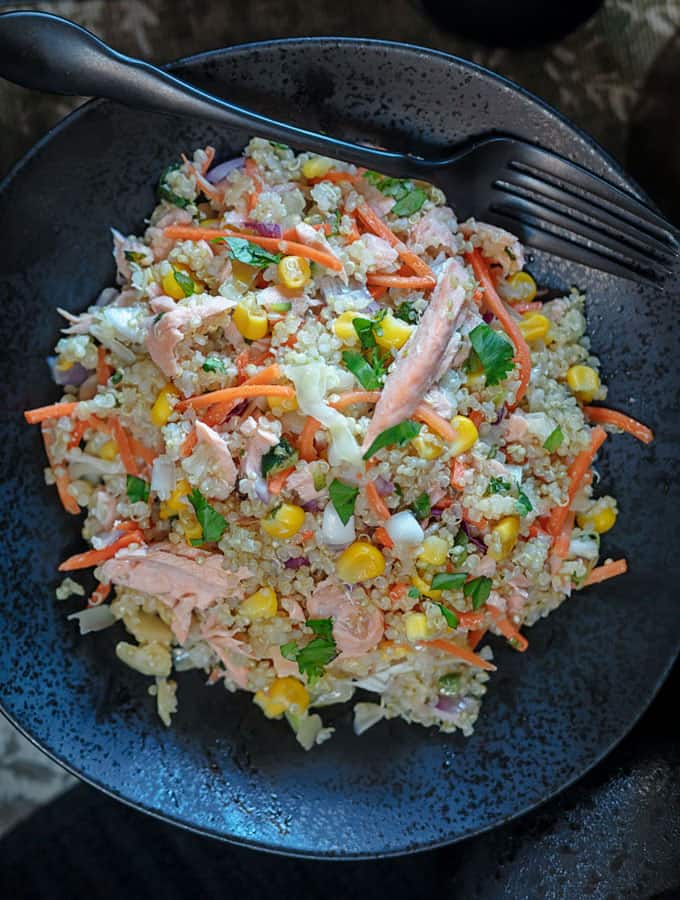
Recipe: Salmon and Quinoa Delicacy
Description: This recipe combines omega-3-rich salmon with protein-packed quinoa for a nutritious meal that supports weight gain.
Ingredients:
- 1/4 cup cooked salmon (flaked)
- 1/4 cup cooked quinoa
- 1 tablespoon chicken bone broth (low-sodium)
- 1/4 teaspoon flaxseed oil
Instructions:
- Cook the salmon until it flakes easily.
- Prepare the quinoa according to package instructions.
- In a mixing bowl, combine the flaked salmon, cooked quinoa, chicken bone broth, and flaxseed oil.
- Mix thoroughly until all ingredients are well combined.
- Serve in appropriate portion sizes based on your cat’s weight and size.
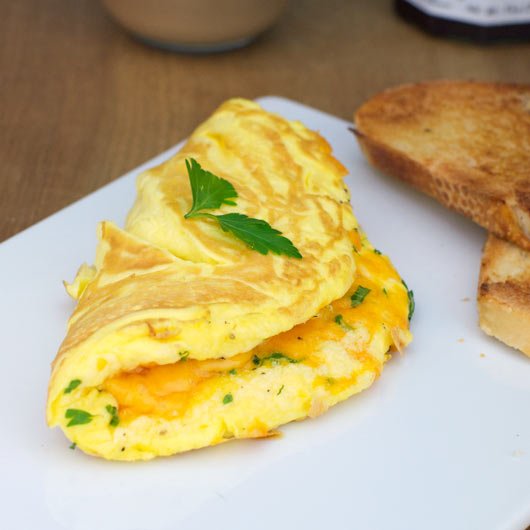
Recipe: Egg and Cheese Omelet
Description: This recipe combines protein-rich eggs with calcium-rich cheese, providing a calorie-dense and delicious meal option.
Ingredients:
- 2 eggs
- 1 tablespoon grated cheese (low-sodium)
- 1 teaspoon unsalted butter
Instructions:
- Crack the eggs into a bowl and beat them until well mixed.
- Heat the unsalted butter in a non-stick pan over medium heat.
- Pour the beaten eggs into the pan and spread them evenly.
- Sprinkle the grated cheese on top of the eggs.
- Cook the omelet until the eggs are fully set and the cheese has melted.
- Allow the omelet to cool, then cut it into small, bite-sized pieces.
- Serve an appropriate portion size for your cat, considering their weight and size.
Portion Control
Tailoring portion sizes according to your cat’s calorie needs is crucial for weight gain. The required calorie amount varies based on the cat’s age, weight, and activity level. Here’s a concise approach to portion control:
Determining Calorie Requirements:
Kittens: For growing kittens, the calorie intake is higher. They generally require about 60 calories per pound of body weight per day. Use the formula: (Kitten’s weight in pounds) x (60 calories) = Daily calorie requirement for weight gain.
Adult Cats: Adult cats (1 year+) need fewer calories than kittens since they are less active. They typically require around 30 calories per pound of body weight per day. Use the formula: (Cat’s weight in pounds) x (30 calories) = Daily calorie requirement for weight gain.
Frequency and Incremental Increase:
Divide the daily calorie requirement into smaller, frequent meals to stimulate appetite and aid weight gain. For example, you can offer three to four meals throughout the day.The above formulas were maintaining a normal body weight. For underweight cats, consider increasing the calorie amount by 10-15% (until the desired weight has been reached).
Start with a baseline portion size, based on the calculated calorie requirement, and monitor your cat’s weight. If weight gain is not occurring, gradually increase the portion size by approximately 10% every week until the desired weight gain is achieved.
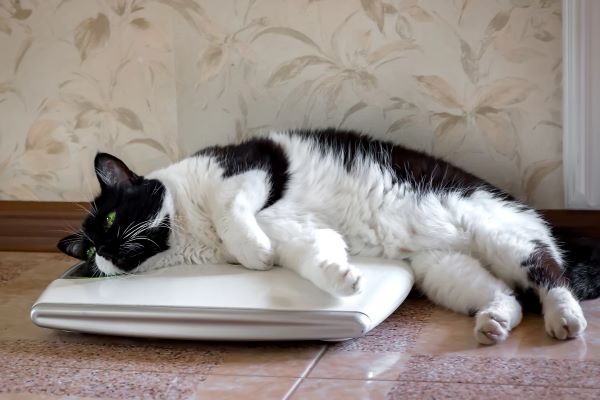
Feeding Guidelines and Tips:
When introducing homemade cat food for weight gain, it’s important to follow these guidelines and tips to ensure a smooth transition and monitor your cat’s progress:
Transition Gradually: Gradually introduce the new homemade food by mixing it with your cat’s current food. Increase the proportion of homemade food while reducing the amount of the previous food over a span of 7-10 days.
Monitor Weight Gain: Regularly monitor your cat’s weight to assess their progress. Keep a record of their weight and body condition to ensure they are gaining weight at a healthy rate. If you have any concerns or notice any unexpected changes, consult your veterinarian.
Water Availability: Ensure your cat has access to fresh water at all times. Hydration is important for overall health and digestion, supporting weight gain efforts.
Treats and Supplements: Limit the number of treats given to your cat during the weight gain process. They are packed with calories, but contain little nutrient value. If necessary, you can consult your veterinarian for appropriate supplements to support weight gain, such as omega-3 fatty acids or multivitamins.
Other Considerations:
In addition to providing homemade cat food, consider the following factors to support your cat’s overall health and well-being:
Regular Veterinary Check-ups: Schedule regular check-ups with your veterinarian to monitor your cat’s weight, overall health, and address any specific concerns or dietary adjustments.
Exercise and Mental Stimulation: Alongside a well-balanced diet, engaging your cat in appropriate exercise and providing mental stimulation can help maintain a healthy weight and overall happiness.
Individual Cat’s Needs: Remember that each cat is unique, and their nutritional requirements may vary. Some cats may require different ingredients or additional dietary modifications based on their specific health conditions or allergies. Always consult your veterinarian to ensure you are meeting your cat’s individual needs.
Conclusion
The Best Homemade cat foods for weight gain offers a wonderful opportunity to provide your feline companion with a customized and nutritious diet. Preparing your cat food at home allows you to experiment and try out different combinations and portions, so don’t be afraid to try new things. This keeps things both interesting for you, and your cat (who can get bored eating the same thing over and over).
Remember, a balanced approach is key. Monitor your cat’s progress, consult your veterinarian for guidance, and adapt the recipes and portions as necessary. With dedication and the right nutritional support, you can help your cat achieve a healthy weight and improve their overall quality of life.
